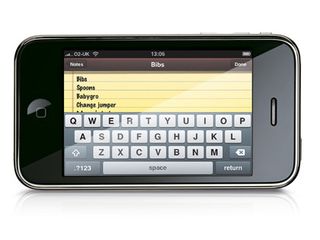Should you choose iPhone 3G or 3GS?
We compare both handsets now they're on Orange as well as O2
An iPhone 3G running the latest iteration of the 3.0 software isn't quite as good as the iPhone 3GS, but it's good enough. Not upgraded your 3G? Now's the time.
There's a lot to like in the software, but there are a few irritations and omissions too. As cynics have been quick to point out, the big news in 3.0 is the arrival of features that lesser phone firms have been offering for ages: multimedia messaging (MMS) and cutting and pasting.
One of the big boons is massively improved JavaScript performance. In the real world, that means faster Maps and improved Safari speeds, and the browser has also been beefed up with antiphishing protection to warn you of potentially dangerous or fraudulent sites. Safari also gets Autofill, so it remembers passwords and can automatically populate online forms with data from Address Book.
MMS is now part of the renamed Messages application. The long-awaited cut, copy and paste functions are a classic case of better late than never. Apple's implementation is simple, stylish and useful, and it's nicer than the copy and paste on rival platforms.
3.0 also introduced tethering, enabling you to use your iPhone as a laptop modem. Unfortunately, O2 has taken the same approach to iPhones as it does with other smartphone customers: unlimited data only means unlimited when you're browsing from your iPhone, not using it as a modem. The latter means paying an extra £15 per month on top of your existing plan. Orange looks to be charging from £5 for the service, but it's only available on business tariffs.
Version 3.0 also brought the landscape keyboard to more applications. It was previously only available in Safari, but now it's on offer in Mail, Messages and Notes – although Apple hasn't changed the hideous font in the latter.

Collaboration has been improved – Calendar now supports the CalDAV standard and Exchange ActiveSync – and if you've got MobileMe, you can take advantage of Find My Phone to, well, find your phone. If your iPhone is stolen, you can remotely zap the data while you call the police.
Get daily insight, inspiration and deals in your inbox
Get the hottest deals available in your inbox plus news, reviews, opinion, analysis and more from the TechRadar team.
The arrival of Spotlight search is also welcome. A quick swipe of the Home screen brings up the familiar search box, and Spotlight looks at everything in your iPhone – so, for example, if you search for a person then Spotlight will return their Address Book entry, relevant Calendar appointments and any emails you've sent to or received from them. Unlike Spotlight on the desktop, however, it can't search the contents of email messages.
If your kids have an iPhone, then you'll like the parental controls (in Settings > General > Restrictions). You can stop them from using Safari, YouTube or iTunes, prevent them from installing apps, disclosing their location or buying upgrades from within applications, and you can filter movies, music and apps to keep things family-friendly.
So what else do you get? iTunes now enables you to download audiobooks, movies and iTunes U content directly to your phone, and also enables you to redeem gift cards without rushing home to your computer; stereo Bluetooth support means you can get groovier headphones; YouTube lets you log in to your account; and the new Voice Memos app enables you to record spoken memos.
Last, and probably least, you can shake your iPhone to undo the most recent action or to change the currently playing song. But it's a gimmick rather than a feature, because hitting delete a few times is faster and more reliable.
The TechRadar hive mind. The Megazord. The Voltron. When our powers combine, we become 'TECHRADAR TEAM'. You'll usually see this author name when the entire team has collaborated on a project or an article, whether that's a run-down ranking of our favorite Marvel films, or a round-up of all the coolest things we've collectively seen at annual tech shows like CES and MWC. We are one.
